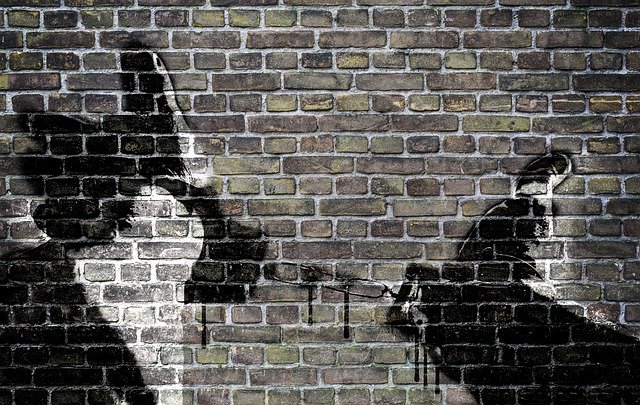Can A Law Enforcement Officer Detain You Without Arresting You?
Imagine you are walking down the street, and a police officer tells you to stop. Then, the officer begins to ask you questions. Are you being arrested? Are you being detained? There might be a million and one thoughts and questions racing through your mind. The general rule of thumb is, if you are not free to leave,… Read More »

Imagine you are walking down the street, and a police officer tells you to stop. Then, the officer begins to ask you questions. Are you being arrested? Are you being detained? There might be a million and one thoughts and questions racing through your mind. The general rule of thumb is, if you are not free to leave, you are either being detained or arrested. Continue reading to learn more about when a law enforcement officer can stop you, the difference between detention and arrest, and...
Imagine you are walking down the street, and a police officer tells you to stop. Then, the officer begins to ask you questions. Are you being arrested? Are you being detained? There might be a million and one thoughts and questions racing through your mind. The general rule of thumb is, if you are not free to leave, you are either being detained or arrested. Continue reading to learn more about when a law enforcement officer can stop you, the difference between detention and arrest, and your rights if you ever find yourself in this situation.
When Can A Police Officer Stop You?
Even if you believe that you have not done anything wrong, a law enforcement officer can approach you to ask questions and request to search you or your objects. In that same breath, unless the police officer has your consent, probable cause, reasonable suspicion, or a warrant, you typically have the right to walk away.
- If a police officer asks you a question or asks if it is okay to search you or your possessions, you are under no legal obligation to consent.
- Probable cause. Although full probable cause is not necessary for a stop, it is needed to make an arrest.
- Reasonable suspicion. To conduct a stop and frisk, a law enforcement officer must first have reasonable suspicion of illegal activity. For example, if there is illegal paraphernalia in plain view.
- Warrant. If a police officer has a search warrant, they are able to search a specified place for evidence, even if you do not consent.
To clarify any potential ambiguities between you and the officer, it is best to kindly ask the officer whether you are free to leave.
What Is The Difference Between An Arrest And Detention?
While you may have heard the terms “arrest” and “detention” used interchangeably, there is a difference between the two. Detention refers to a police officer’s “brief and cursory” holding and questioning of a person. On the other hand, an arrest involves a law enforcement officer taking a person into custody, and the person is no longer free to leave.
One of the most common examples of a non-arrest stop is a traffic stop. For instance, if a police officer pulls you over for speeding in your car, you are being detained or briefly stopped but not arrested. In this scenario, you will be free to go after the law enforcement officer finishes their questioning or hands you a ticket. However, if, for example, the officer notices illegal drugs in plain view, then the officer now has probable cause and may arrest you without a warrant.
Takeaway: A person may be detained but not arrested. Although, detention may lead to an arrest.
Know Your Rights When Detained by the Police
In Florida and the rest of the country, law enforcement officers must treat all individuals fairly, regardless of their race, ethnicity, national origin, or religion. If you have been detained, here are a few rights that you have:
- You have the right to remain silent. With this right, you are not required to answer a police officer’s questions. You cannot be punished for refusing to answer questions. Be sure to tell the officer out loud that you are invoking your right to remain silent.
- You do not have to identify yourself UNLESS you are stopped on suspicion of a crime or a traffic violation. If you do not have identification documents on hand, you may opt to remain silent.
- You have the right to refuse a search. However, officers are not required to first seek permission if they suspect that you have a weapon.
If you are interested in finding out about non-arrest detentions, you can read more on the subject.
Admin Legal Bites
Legal Bites Study Materials correspond to what is taught in law schools and what is tested in competitive exams. It pledges to offer a competitive advantage, prepare for tests, and save a lot of money.

